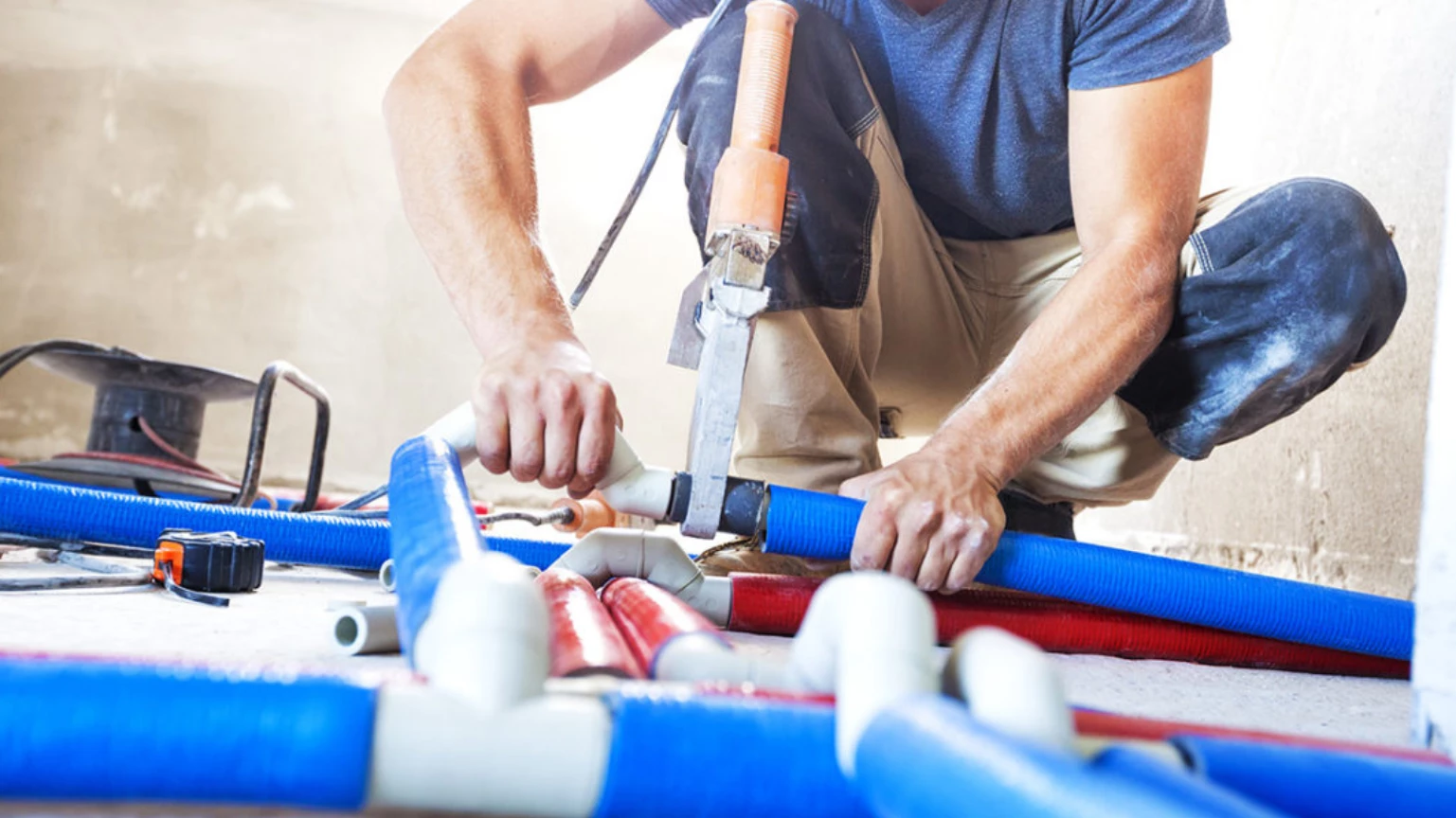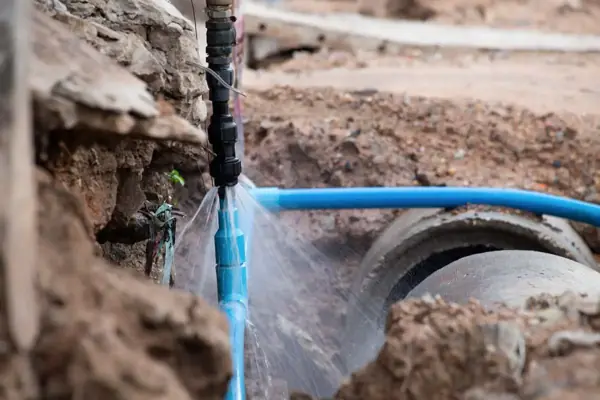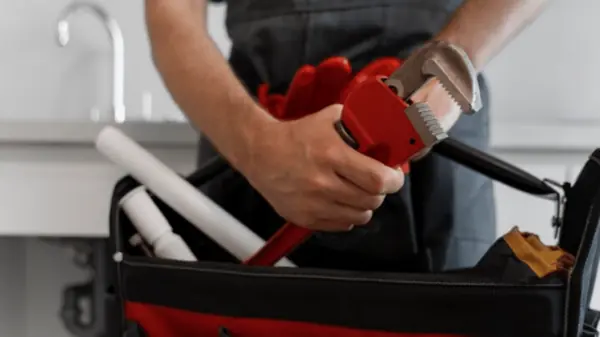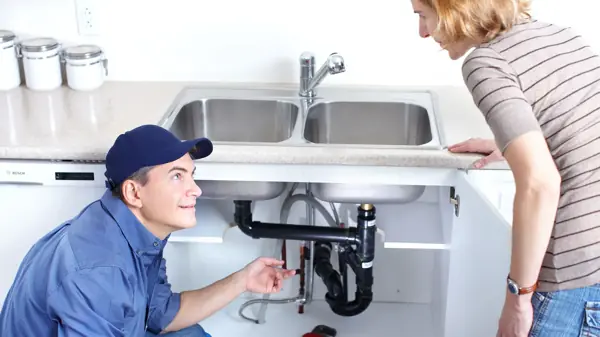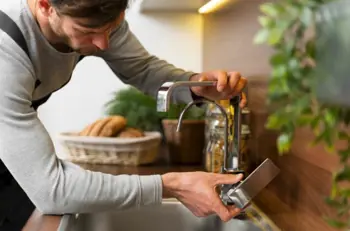Discover the epitome of piping perfection with our comprehensive home repiping services. Piping Perfection specializes in expertly upgrading and replacing outdated or faulty piping systems to ensure your home’s utmost reliability and efficiency. Our experienced team utilizes advanced techniques and premium materials to complete repiping projects with precision and care, delivering lasting results that exceed expectations.
Say goodbye to plumbing headaches and hello to peace of mind with our complete home repipes. Whether you’re dealing with old, corroded pipes, frequent leaks, or low water pressure, our experts have the skills and expertise to revitalize your plumbing system and enhance the comfort and functionality of your home. Trust Piping Perfection for unparalleled quality and craftsmanship in every repiping endeavor.
What are the typical signs that indicate a home needs a complete repipe?
Several signs may indicate that a home needs a complete repipe:
- Frequent Leaks: If you’re experiencing frequent leaks throughout your plumbing system, it could be a sign of deteriorating pipes nearing the end of their lifespan. Leaks may occur at joints, connections, or along the length of the pipes.
- Low Water Pressure: Decreased water pressure throughout the home can indicate blockages, corrosion, or damage within the pipes. If cleaning or repairing individual fixtures doesn’t resolve the issue, it may be a sign that the entire plumbing system needs attention.
- Discolored Water: Rusty or discolored water from the taps can indicate corrosion or rust within the pipes. While discolored water can sometimes be attributed to temporary issues with the municipal water supply, persistent discoloration often points to internal pipe problems.
- Foul Odors or Strange Tastes: If your water has a foul odor or unusual taste, it may indicate contamination from corroded or deteriorating pipes. This can occur when pipes degrade, allowing foreign substances to leach into the water supply.
- Visible Corrosion or Damage: Inspect pipes in the basement, crawl space, or utility closets for signs of corrosion, rust, or damage. Visible deterioration indicates that the pipes are compromised and may need to be replaced.
- Old Age of Pipes: If your home’s plumbing system is several decades old and has never been updated, it may be approaching or exceeding its expected lifespan. Aging pipes are more susceptible to leaks, corrosion, and other issues, making a complete repipe necessary to ensure long-term reliability and safety.
If you notice any of these signs, it’s essential to consult with a qualified plumber or plumbing contractor to assess the condition of your home’s plumbing system and determine whether a complete repipe is necessary. Addressing these issues promptly can help prevent further damage and ensure the continued functionality of your plumbing system.
How long does it usually take for experts to complete an entire home repipe project?
The duration of an entire home repipe project can vary depending on several factors, including the home’s size, the plumbing system’s complexity, the materials used, and the expertise of the plumbing professionals. However, a typical home repipe project can take several days to weeks.
Here’s a general breakdown of the time frame for an entire home repipe project:
- Assessment and Planning: The initial assessment and planning phase may take several days to a week. During this phase, the plumbing professionals evaluate the existing system, determine the scope of work required, and develop a detailed plan for the repiping project.
- Preparation and Material Acquisition: Once the plan is finalized, the plumbing team will acquire the necessary materials and prepare the site for repiping. This process typically takes a few days, depending on the availability of materials and any required permits.
- Repiping Installation: Depending on the home’s size and the plumbing system’s complexity, installing the new pipes can take a few days to a week or more. This involves removing the old pipes, installing new pipes, fittings, and fixtures, and ensuring everything is connected correctly and sealed.
- Inspection and Testing: After the repiping installation, the plumbing system will undergo thorough inspection and testing to ensure everything functions correctly and meets building codes and regulations. This process may take a day or two to complete.
- Finishing Touches and Cleanup: Once the repiping work has passed inspection, the plumbing team will perform any necessary finishing touches, such as patching walls or repairing flooring, and clean up the work area to restore it to its original condition.
A complete home repipe typically takes one to three weeks, depending on the project’s requirements and any unforeseen complications. Working with experienced and reputable plumbing professionals who can efficiently manage the project and ensure high-quality results within a reasonable time frame is essential.
What factors contribute to the cost of hiring professionals for a complete home repipe?
Several factors contribute to the cost of hiring professionals for a complete home repipe project:
- Size of the Home: The size of the home, including the number of bathrooms, kitchens, and fixtures, can significantly impact the cost of a repiping project. Larger homes with more extensive plumbing systems typically cost more due to pricier materials and labor.
- Scope of Work: The cost of repiping projects depends on the size and complexity of the plumbing system. Removing old pipes, installing new pipes, and shifting fixtures or appliances is more laborious and expensive than pipe replacement.
- Type of Pipes and Materials: Copper pipes are more expensive than PEX or CPVC but may last longer. The quality of fittings, valves, and other components affects cost.
- Accessibility and Ease of Installation: Plumbing system accessibility and installation ease affect labor costs. Imagine an unfinished basement or crawl room with easy plumbing access. That may save labor expenses compared to major demolition or excavation to reach the pipes.
- Permits and Regulations: Depending on local building codes and regulations, permits may be required for repiping, which can add to the overall cost. Additionally, adherence to building codes and regulations may necessitate certain upgrades or modifications to the plumbing system, increasing the price.
- Location and Labor Rates: Labor rates vary depending on the location and prevailing market rates for plumbing services in the area. Higher labor rates in urban areas or regions with high demand for skilled tradespeople may result in higher project costs.
- Additional Services or Upgrades: If the re-pipirepiping involves additional services or upgrades, such as installing new fixtures, water heaters, or filtration systems, these will add to the total cost of the project.
- Warranty and Guarantees: Some plumbing contractors may provide quality and material warranties, which can provide added peace of mind but may also affect the overall cost.
By considering these factors and obtaining detailed estimates from multiple plumbing professionals, homeowners can better understand the cost of hiring professionals for a complete home re-piperepipeke informed decisions based on their budget and needs.
Are there specific types of piping materials recommended for optimal performance in home re-piperepipets?
Several piping materials are commonly used for home re-piperepipets, each with advantages and considerations. The choice of piping material depends on cost, durability, ease of installation, and local building codes. Some of the most commonly recommended piping materials for home re-piperepipets include:
- Copper: Copper pipes are a popular choice for home repipes due to their durability, longevity, and resistance to corrosion. They also have pipe conductivity and strong water pressure resistance. Copper is pricey, but its reliability and durability make it popular.
- PEX (Cross-linked Polyethylene): PEX pipes have gained popularity recently for their flexibility, ease of installation, and affordability. PEX is a flexible plastic material that bends and curves around obstacles, making it ideal for retrofitting existing plumbing systems. It is also resistant to corrosion, scale buildup, and freezing, making it well-suited for various applications.
- CPVC (Chlorinated Polyvinyl Chloride): CPVC pipes are like PVC pipes but designed for hot water. CPVC is lightweight, easy to install, and resistant to corrosion and chemical damage. CPVC pipes are often used in re-pipirepipingts where hot water lines must be replaced.
- Galvanized Steel: Galvanized steel pipes were once commonly used in home plumbing systems. However, they have largely been phased out in favor of other materials due to their tendency to corrode and develop scale buildup over time. Despite their durability, galvanized steel pipes rust and can break, restricting water flow over time.
- PE (Polyethylene): PE pipes are another plastic piping material used for water supply lines. They are flexible, corrosion-resistant, and easy to install, making them suitable for underground applications or areas with shifting soil conditions.
When selecting piping materials for a home re-pipe, water quality, affordability, local building codes, and expertise of the plumbing contractor must be considered. Consulting with a qualified plumber or plumbing professional can help homeowners determine the best piping material to meet their demands and maximize the performance and longevity of the plumbing system.
Upgrade Your Home: Piping Perfection Awaits You!
Transform your home with Hi-Desert Plumbing’s expertise in complete home repipes. Say goodbye to plumbing woes and hello to pristine piping perfection. Our seasoned professional in comprehensive repiping solutions ensures your home’s plumbing system operates flawlessly for years to come. We guarantee that we exceed your expectations with attentive attention to detail and high-quality craftsmanship.
Don’t settle for outdated or unreliable pipes – trust Hi-Desert Plumbing to elevate your home with precision and care. Schedule your consultation today and discover the difference piping perfection can make for your home’s comfort and functionality.

